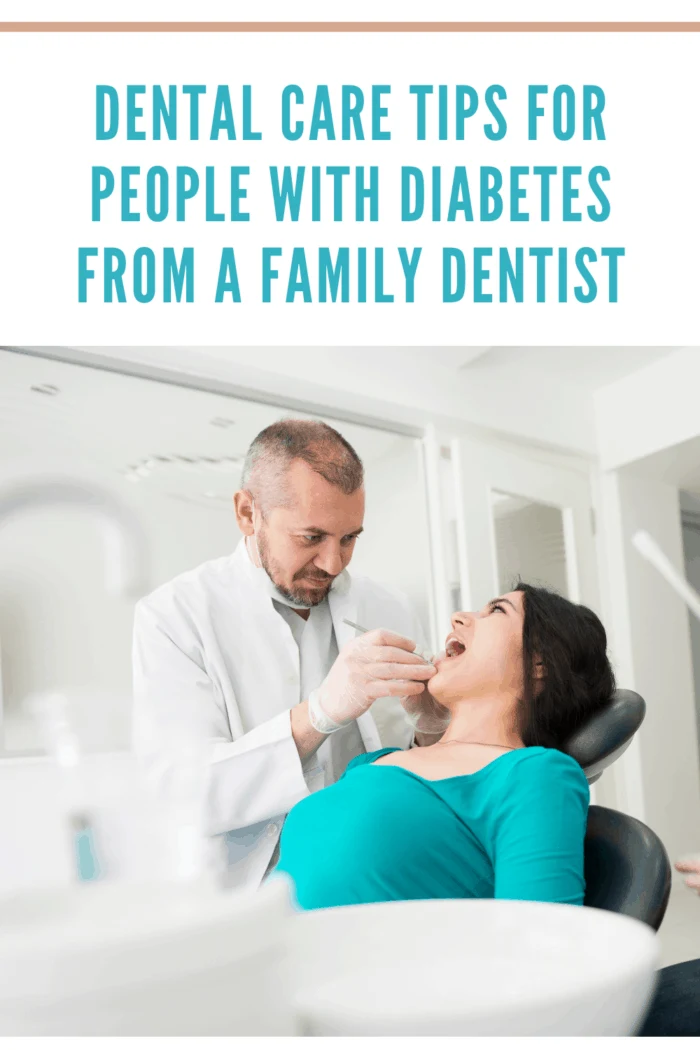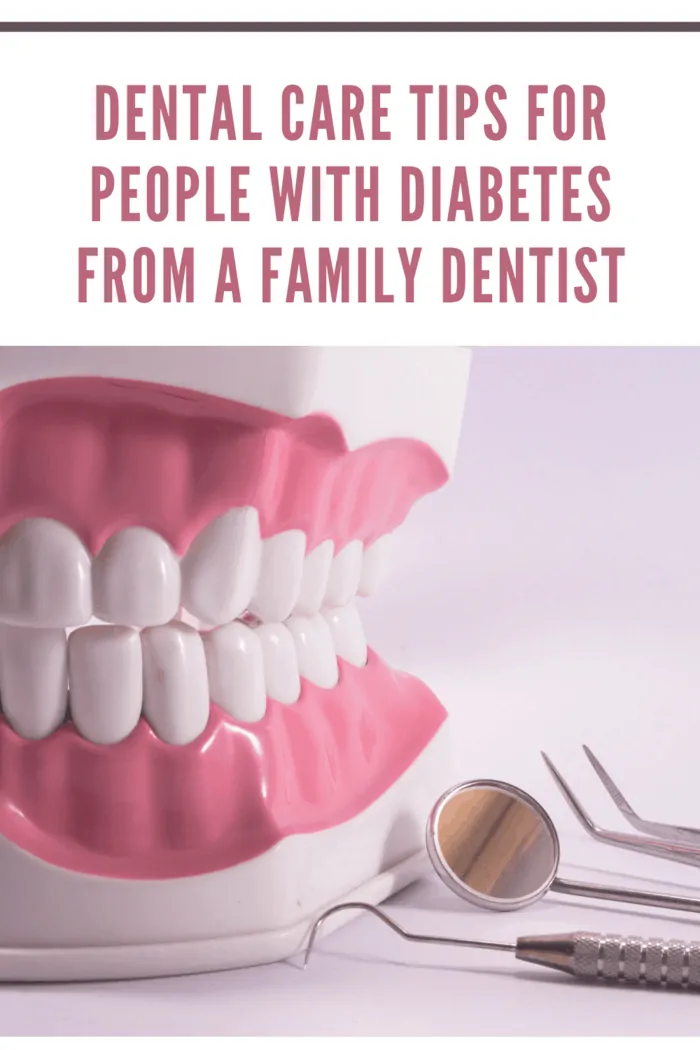Diabetes is a condition that over 100 million US adults (CDC) suffer from. The disease essentially impacts how insulin breaks down blood glucose to be absorbed by cells to use as energy. This increases the blood glucose levels in the blood to rise due to not being absorbed by cells leading to health problems. Since there isn’t an exact cure for diabetes, individuals that suffer from it need to maintain a healthy diet and live an active life.

Diabetes and Dental Care
The fact Because diabetes hinders the processing of sugar, without proper oral care, you are at risk of dental problems.
The impact of diabetes on your mouth is as follows:
Dry mouth,
Your mouth will produce less saliva causing it to feel dry.
Can lead to cavities
Saliva helps protect your teeth from getting cavities. With less saliva production and your mouth being dry, your teeth are more likely to develop cavities.
Gingivitis
Once again, the teeth are likely to experience plaque and tartar buildup without normal saliva production, which can get into the gums.
This causes inflammation and bleeding of the gums.
Experience problems of taste
When eating certain foods, you may experience problems with taste.
Healing from wounds takes longer.
Become more susceptible to developing infections in the mouth.
Children that have diabetes tend to develop teeth at an earlier age than normal.
This is why it is important to get your teeth troubles sorted to keep them healthy, say the experts at The Union Dental.
Why Diabetes Makes It More Likely for Gum and Other Oral Problems to Occur
The mouth contains millions of bacteria.
The bacteria reside mostly on your teeth and tongue.
When they reach the gum, they can easily make it their home, leading to gingivitis and other more serious gum diseases such as periodontal.
Periodontal leads to the breakdown of the gum tissues, destroying them, which causes the loss of teeth since the gums are no longer there to keep them in place.
Periodontal is a common oral problem that individuals with diabetes face. (NCBI)
This is due to poor blood glucose control by the body.
Infections such as periodontal causes blood sugar to rise.
Which makes it harder for individuals to control diabetes.
At the same time, they cannot fight the infection in their mouth due to diabetes.
The two impact each other, both making each of the conditions more serious.

The Dental Action Plan Individual with Diabetes Should Adopt
To ensure that diabetes doesn’t lead to serious oral problems, individuals need to take the following measures:
Manage diabetes:
Talk to your doctor about how you can keep your diabetes in check so that your blood sugar levels don’t get too high.
The more you keep the sugar levels in check, the less likely you are to develop oral problems.
Follow a strict oral regimen:
This means to brush a minimum of twice daily, once in the morning and the second time before bed.
Ideally, it would be better if you brush after each meal and snack.
When brushing use a soft-bristled toothbrush and toothpaste with fluoride.
Be gentle when brushing so you don’t irritate the gums and cause bleeding.
Since the bleeding typically takes longer to stop for those with diabetes.
You should also floss your teeth once a day.
This will help remove any plaque between your teeth, which prevents it from reaching your gums or buildup and tartar formation.
Visit your dentist regularly:
You should visit a local dentist near you at least twice a year, says VIP Care Dental.
The experts can ensure you fight any oral problem that may be developing before it becomes serious.
You also want to tell your dentist that you have diabetes.
This way, they will give you the necessary care and exams to keep diabetes and oral problems at bay.
Since the two can impact one another.
Quit smoking:
If you smoke, it is high time you stop.
Smoking can lead to serious oral complications such as gum disease and tooth loss.
Speak to your doctor about how you can go about quitting smoking.
Diabetes can make individuals more prone to oral problems, which is why it is important for individuals that suffer from the disease to manage it with the help of their doctors.
At the same time, your local dentist, along with a good oral regimen, can help prevent oral problems and ensure good oral health.
